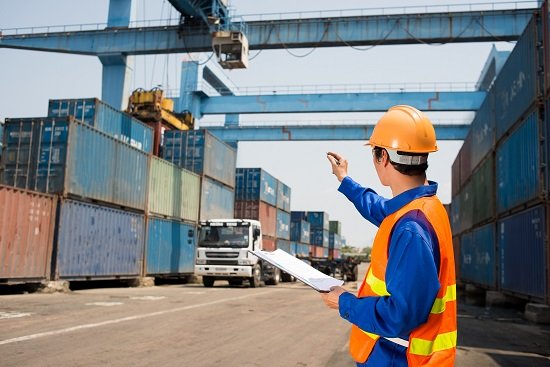Longshoremen are workers who load and unload cargo from a variety of vessels in our ports. This type of work is a very important aspect of the maritime industry.
Also called stevedores, these maritime workers are exposed to potentially harmful situations every day while on the job, from lifting heavy equipment to handling hazardous materials. Some of the ways in which longshoremen move cargo are by crane, container handlers, tractors, trucks and often, by hand. Unfortunately, engaging in manual labor makes longshoremen vulnerable to injuries, such as back, neck, shoulder, and knee injuries.
If you have been injured on the job, it’s important to understand your longshoreman rights and how to file LHWCA claims.

Your Longshoreman Rights After an Injury
The Longshore and Harbor Workers’ Compensation Act (LHWCA) is a federal law that provides for compensation, rehabilitation, and medical care to workers who are injured while working “upon the navigable waters of the United States” in jobs that assist in maritime commerce.
Longshoremen can be found working in several types of facilities such as shipping terminals, piers, dry docks, and wharves.
Injured maritime workers who qualify for relief under The Longshore and Harbor Workers’ Compensation Act are entitled to disability payments, medical care and vocational rehabilitation compensation if they are permanently unable to return to their job due to their injuries.
The amount of disability payments workers are eligible for and how long they can receive them is based on:
- How much they earned before the injury (their Average Weekly Wage)
- Whether the disability is partial or total
- Whether the disability is temporary or permanent
The LHWCA also provides for wrongful death benefits to surviving a spouse and children if a worker suffers a job-related injury or illness that causes or contributes to his or her death.
Over $1 Billion Recovered For Our Injured Clients
Workers who may be protected under the LHWCA include:
- Longshoremen
- Harbor workers
- Shipbuilders
- Ship repairmen
- Ship breakers
- Forklift operators
- Dock men
- Pier constructors
These are just some examples of workers covered under The Longshore and Harbor Workers’ Compensation Act. The LHWCA extends to various workers who perform different jobs on the water, not just those listed here, which is why is it important to contact Lambert Zainey to determine if you are entitled to benefits under the LHWCA.
Section Close DIVFiling A Claim Under The LHWCA
Under the LHWCA, injured workers must meet certain time limits for filing a claim. A worker must notify his employer of the injury in writing within 30 days of the date of the injury, or from the date the worker became aware that his injury was related to his maritime job. If a case is filed, it must be within 1 year of the date of injury or 1 year of the date the worker became aware that the injury was related to his job. If you are injured at work, it is important to contact the attorneys at Lambert Zainey immediately to ensure that your claim is filed within the deadlines provided by the LHWCA and ultimately, that your longshoreman rights are protected and preserved.
Third Party LHWCA Claims
As a longshoreman, you have a right to benefits under the LHWCA whether your injury was caused by your employer’s negligence or not. If your injury was caused by negligence of someone other than your employer, you may be able to take legal action against the negligent third-party for additional compensation.
For example, if you were injured while unloading a ship due to negligence of the ship owner, you may be able to sue the vessel owner in a third-party lawsuit.
Get Help Protecting Your Longshoreman Rights
Lambert Zainey has more than 35 years of experience in helping maritime workers who have been injured on the job. Contact our maritime lawyers in New Orleans today for answers to your questions about your rights as a longshoreman and to get help filing an LHWCA claim.
Nationally Recognized Attorneys







